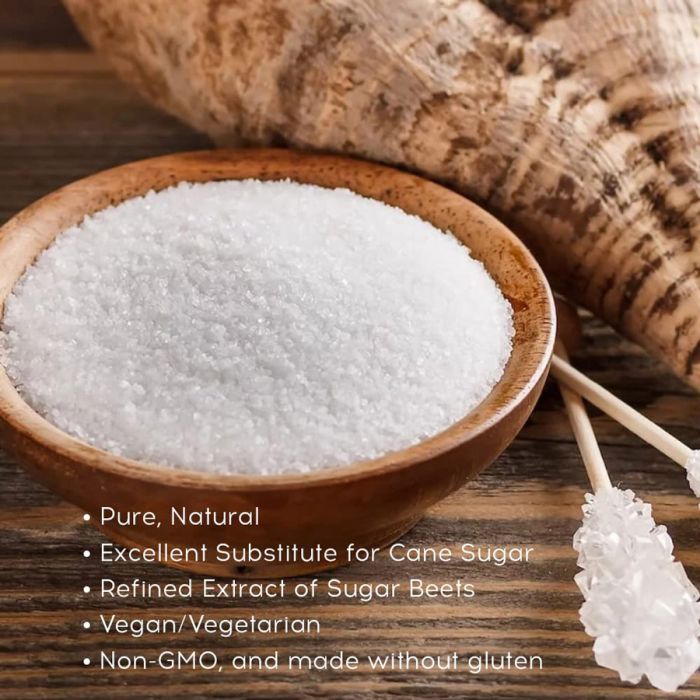When considering beet sugar vs cane sugar, some opt for one for cooking while others favor the alternative.
When considering beet sugar vs cane sugar, some opt for one for cooking while others favor the alternative.
Blog Article
Discover the Uses and Benefits of Beet Sugar Vs Cane Sugar in Your Daily Diet Regimen
Checking out the unique high qualities of beet and cane sugar reveals greater than just their sweetening capacities; it highlights their unique effect on health and cookeries. Beet sugar, understood for its subtle taste, is commonly preferred in fragile treats, whereas cane sugar, with its hint of molasses, includes richness to robust recipes. Each kind holds its very own nutritional profile and glycemic ramifications, inviting a deeper understanding of their roles in a well balanced diet regimen and lasting intake techniques.
Origin and Manufacturing Procedures of Beet and Cane Sugar

The distinct climates and dirt kinds required for expanding sugar beets and sugarcane add to distinctions in their growing techniques and geographical distribution, affecting the economics and sustainability of their manufacturing. beet sugar vs cane sugar.
Nutritional Comparison Between Beet Sugar and Cane Sugar
Regardless of stemming from different plants, beet sugar and cane sugar are nutritionally really similar, both largely including sucrose. Each supplies about 4 calories per gram, equating to approximately 16 calories per teaspoon. Structurally, both sugars are composed of around 99.95% sucrose, with minimal quantities of various other substances like moisture and trace element, which do not considerably change their dietary profiles.

Ultimately, when selecting in between beet sugar and cane sugar based upon nutritional content alone, both deal similar advantages and downsides as they are essentially forms of the very same molecule-- sucrose, supplying quick energy without various other nutrients.
Effect On Health And Wellness: Glycemic Index and Caloric Material
Exploring further into the impacts of beet sugar and cane sugar on wellness, it is essential to consider their glycemic index and calorie content. Both sugars are classified as sucrose, which contains sugar and fructose. This structure leads them to have a comparable influence on blood sugar degrees. The glycemic index (GI) of both beet and cane sugar is around 65, classifying them as high-GI foods, which can cause quick spikes in blood glucose degrees. This is a vital element for people taking care of diabetes or those trying to maintain their power levels throughout the day.
Each sort of sugar includes about 4 calories per gram, making their caloric content equivalent. For those keeping track of caloric intake, specifically when handling weight or metabolic health and wellness conditions, comprehending this equivalence is crucial (beet sugar discover this info here vs cane sugar). Excessive intake of any kind of high-calorie, high-GI food can contribute to wellness problems such as obesity, heart illness, top article and insulin resistance.
Environmental and Economic Considerations of Sugar Production
Beyond health and wellness impacts, the manufacturing of beet and cane sugar also raises substantial ecological and financial worries. Sugar beet farming often tends to call for cooler environments and has a lower geographical footprint contrasted to sugar cane, which prospers in tropical regions. Both plants are intensive in terms of water use and land line of work, possibly leading to deforestation and water deficiency. Financially, the global sugar market is highly volatile, affected by adjustments in worldwide trade policies and aids. Several countries incentivize sugar manufacturing with financial assistance, skewing market value and affecting small farmers negatively.
Additionally, using pesticides and fertilizers in both beet and cane sugar growing can result in soil destruction and pollution, more affecting biodiversity and neighborhood water bodies (beet sugar vs cane sugar). The choice between growing sugar beet or cane typically hinges on local ecological problems and financial factors, making the sustainability of sugar production a complicated concern
Culinary Applications and Flavor Distinctions
While the ecological and economic elements of sugar production are without a doubt substantial, the selection between beet and cane sugar also affects cooking applications and flavor profiles. Beet sugar, originated from the sugar beet plant, is understood for its remarkably neutral preference. This This Site makes it a versatile ingredient in cooking, where it does not modify the taste of other elements. It liquifies swiftly and is ideal for usage in cakes, cookies, and pastries.
Cane sugar, removed from sugarcane, usually keeps molasses traces, which pass on a distinct richness and depth. The mild variation in moisture material between beet and cane sugar can impact the texture and consistency of meals, making cane sugar a favored selection for specific dishes that profit from its special properties.

Final Thought
In conclusion, both beet and cane sugar have unique origins and production processes, using similar nutritional accounts with minor differences in salt material and taste. While their effect on health, specifically concerning glycemic index and calories, is equivalent, the choice in between them typically comes down to ecological, financial factors, and certain cooking needs. Comprehending these elements can lead consumers in making informed decisions that line up with their wellness objectives and flavor preferences.
Report this page